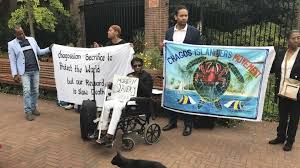A New Era for the Chagos Islands and Diego Garcia
In a landmark development, the decades-long dispute over the Chagos Islands Diego Garcia, particularly the strategic Diego Garcia military base, has taken a significant turn. The UK government recently announced a crucial agreement with Mauritius to negotiate the future sovereignty of the Chagos Archipelago, which has been a contentious issue since the 1960s. This decision marks a potential breakthrough in the fight for justice and self-determination for the Chagossians, who were forcibly removed from their homeland over five decades ago.
Background: A Long-Standing Colonial Legacy
The Chagos Islands, located in the Indian Ocean, were once part of the British colony of Mauritius. However, in 1965, three years before Mauritius gained independence, the United Kingdom separated the Chagos Archipelago from Mauritius and established it as the British Indian Ocean Territory (BIOT). The most significant island, Diego Garcia, became a critical military base, leased to the United States since the 1970s.
During this period, around 1,500 Chagossians were forcibly evicted from their homeland to make way for the military installation. This action has been widely condemned as a violation of human rights, leading to a series of legal battles and international campaigns for the right of return and reparations for the Chagossians.
The Diego Garcia Military Base
Diego Garcia, the largest island in the Chagos Archipelago, is home to a massive U.S. military base, considered one of the most strategically vital military assets in the world. The base has played key roles in various military operations, including in the Gulf Wars, Afghanistan, and counterterrorism efforts in the Middle East.
Despite its strategic importance to both the UK and the U.S., the continued use of Diego Garcia has been a source of contention. Critics argue that the base’s existence cannot justify the prolonged displacement and suffering of the Chagossians. The island remains off-limits to its original inhabitants, who have continued their struggle for justice from afar.
International Court of Justice (ICJ) Ruling
In 2019, the International Court of Justice (ICJ) ruled that the UK’s continued control of the Chagos Islands was unlawful, and that the islands should be returned to Mauritius as soon as possible. The ICJ concluded that the separation of the Chagos Archipelago from Mauritius before independence was a violation of international law. This ruling added significant pressure on the UK, but until recently, progress on the matter had been slow.
Recent Developments: Path Towards Resolution
In a major breakthrough in 2023, the UK government agreed to enter into negotiations with Mauritius over the sovereignty of the Chagos Islands. These talks represent a key step towards resolving the dispute, potentially paving the way for the Chagossians to return to their homeland. Mauritius has repeatedly stated its commitment to allowing the U.S. to continue using the Diego Garcia base, ensuring that strategic interests are preserved while addressing the humanitarian issues.
Conclusion
The latest agreement between the UK and Mauritius over the Chagos Islands and Diego Garcia offers hope for a just resolution to one of the last vestiges of British colonialism. For the Chagossians, this marks a significant milestone in their fight for the right to return to their ancestral lands. As negotiations progress, the world will be watching closely to see if justice will finally be served for the people of the Chagos Archipelago, while ensuring that global security interests are balanced with human rights and sovereignty.

